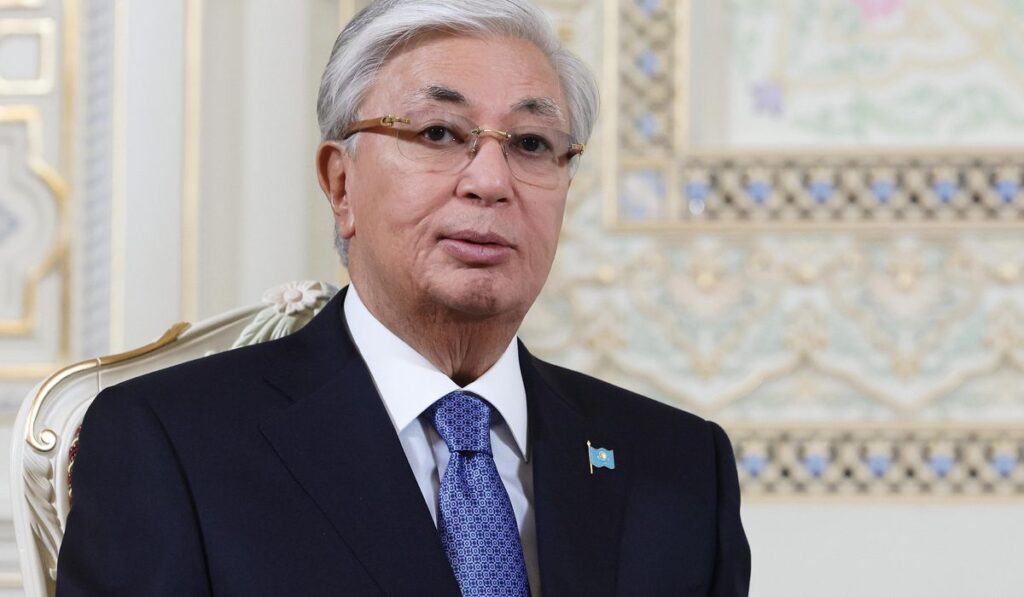Kazakhstan’s move into the Abraham Accords marks a significant diplomatic shift with immediate geopolitical and economic implications, and it signals a broader openness to Israeli ties across Central Asia.
President Trump said Thursday that Kazakhstan is joining the Abraham Accords, marking the first country during his second term to join his first-term prized foreign policy achievement. That announcement landed quickly and cleanly, and it’s being framed as both a diplomatic win and a practical step toward deeper cooperation. The news changes the map of regional relationships without fanfare or complex bargaining spelled out publicly yet.
The Abraham Accords began as a U.S.-led effort to normalize relations between Israel and several Arab states, and Kazakhstan’s inclusion extends that platform into Central Asia. For Kazakhstan, the move opens diplomatic channels to advanced Israeli technology and security partnerships that weren’t as readily available before. For Israel, it’s access to a stable, resource-rich partner that can serve as a gateway to new markets and regional influence.
This alignment will likely accelerate defense and intelligence cooperation, two areas Israel and Kazakhstan both value. Israel’s expertise in cyber, surveillance, and counterterrorism fits needs that Central Asian governments have been vocal about. Expect targeted agreements — not headline-grabbing treaties — focused on training, sharing technology, and joint exercises where both sides see practical returns.
Economically, Kazakhstan offers energy and mineral resources that attract serious Israeli and Western interest, and those ties can accelerate trade flows and private investment. Agriculture, water tech, and renewable energy are natural complements to Israeli innovation and could see rapid pilot projects. Business deals often follow diplomatic openings, and this accord creates a framework that lowers political risk for investors.
From a Republican vantage point, this development is a vindication of a policy that pairs American diplomacy with clear-eyed national interest. It shows that firm, results-oriented engagement can produce tangible outcomes without endless multilateral negotiations. The Trump-era emphasis on deals and recognition of allies is being presented as the engine behind this expansion of the accords.
Strategically, Kazakhstan’s participation complicates the influence of regional heavyweights who prefer to keep Central Asia within their own orbit. Russia and China will notice a new, Western-leaning connection in a part of the world where they historically project power. Tehran’s response will be measured, but any expansion of Israeli ties close to Iran’s northern flank will be watched closely in Tehran’s corridors of power.
Diplomacy of this sort tends to be transactional and gradual, and that’s the likely path here: memoranda, business forums, technical exchanges, and slow-burning institutional links. That approach keeps friction low while building networks of cooperation that matter over time. It’s the kind of practical statecraft Republicans argue beats bureaucratic stasis and symbolic gestures.
Public reaction will vary: some will celebrate a stronger pro-Western alignment in Central Asia, others will caution that sovereign choices come with responsibilities and potential backlash. Local elites in Astana will weigh economic benefits against geopolitical balancing acts with Moscow and Beijing. Onlookers will parse whether this move signals a new wave of countries willing to formalize ties with Israel or a singular case driven by Kazakhstan’s specific interests.
Implementation will focus on concrete sectors and bilateral bodies rather than grand declarations, which means the next months are likely to produce technical agreements and business initiatives. Those who watch foreign policy closely should look for defense cooperation announcements, trade delegations, and joint research projects as early indicators of momentum. If the pattern follows previous accords, the real test will be whether these initial steps translate into deeper institutional ties and steady commerce.



